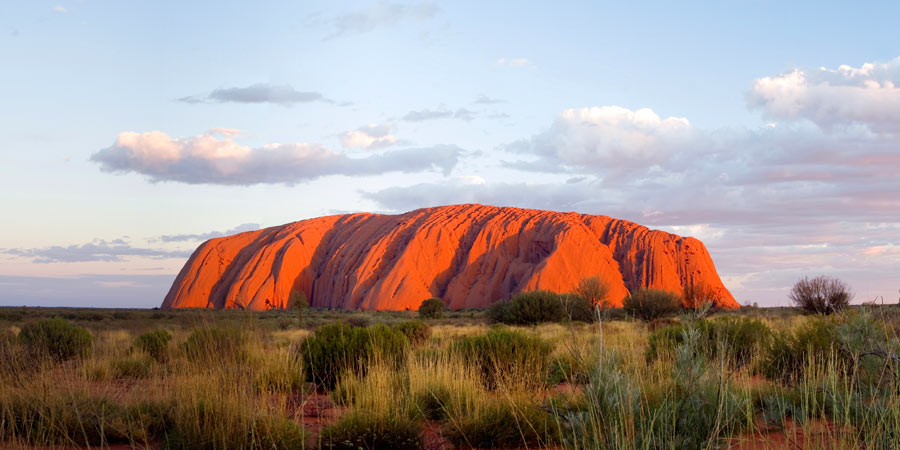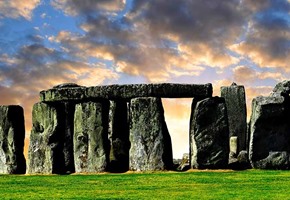After discovering café culture in Europe, the kaleidoscopic frenzy that is India and Burma, and the incredible cities and beautiful beaches of Thailand and Malaysia, this week's episode of Around the World by Train sees Tony Robinson head down under. In episode 4, the actor uncovers the unique quirks of Australia; from herding camels in the outback and releasing an 80-year-old sea turtle back into the wild, to visiting a bizarre festival dedicated to a camp oven and of course, embarking on some truly incredible rail journeys.
Tony's Australian adventure begins in Sydney - a city he's well acquainted with, having lived and worked there for years. He admits he has no time to waste but can't resist treating us to a helicopter flyover of what he calls "one of the most beautiful cities in the world" before darting off. Tony admits that while he knows Sydney well, the vast majority of Australia is still a mystery to him. He wants to discover 'small town Australia', so he heads north to Queensland, on an epic two-part, 18-hour rail journey.
Leaping across the platform in Brisbane to change trains for his journey west, Tony admires the retro, stainless steel design of The Westlander - the "snazzy, modern name" that replaced train's original 19th century epithet, the Western Mail. "I'm retracing the steps of the country's earliest pioneers", he says, arriving in the small rural town of Millmerran, at the edge of the outback. His arrival coincides with a camp oven festival, a two-day event dedicated to the celebration of a cast iron cooking pot, a notion which bemuses Tony. "It's like 5,000 people having a festival in Maidstone, Kent to celebrate the frying pan" he dryly remarks. Thousands of people flock here to pay homage to the humble camping accessory, and Tony is fascinated to discover why. He speaks to a local named Ned, an ex-outback sheepherder who helped to dream up the festival, who informs us that this method of cooking is an important part of rural Australian heritage, and often the only way people of the past had of cooking their food.
Keen to involve himself in the festivities and experience bush life to the full, Tony and Ned get to work on cooking some damper bread, a traditional Australian soda bread. Tony soon learns that instead of eating the baked bread, he is expected to join locals in throwing it as far as he can. "Aussie's will turn practically anything into a sport" he laughs before hurling the bread, cheered on by shouts of "go Baldrick". On the surface, this is a silly festival, but at its heart, it's all about keeping local traditions and celebrating bush heritage, and there's an integrity in that that Tony praises.
Back on a train, Tony begins a 24-hour journey into the bush; explaining along the way that train lines like this were important in allowing access to the inner reaches of Australia in the 1800s. He's here to get his hands dirty, and so on arrival joins local farm owner Deon in a spot of camel herding. Camels were first introduced to Australia in the 1840s and there are now over one million of them running wild, an amount so large that Australia has begun exporting camels to Saudi Arabia. The camels are used on farms to control weeds and need to be herded between paddocks every few weeks - a marathon task which Tony is happy to lend a hand with.
The next day, Tony heads yet further north, pausing to meet Dave Elliot, a farmer who made an impressive discovery when he found a "heck of a bone" - a dinosaur toe from an undiscovered species later named savannasaurus elliotorum - which loosely translates to 'the Elliot family's lizard of the grasslands.' Tony's destination is Cairns, known as the gateway to the Great Barrier Reef. It's a tropical paradise; lush forests, turquoise waters, and the world's largest and most famous coral reef. But, increases in water temperatures are causing damage, and instead of the vibrant hues he expects, Tony faces dead, grey-white coral, the result of a 2017 bleaching event. He meets a father and son here to discuss the plight of the reef and learns of their efforts to help save the coral by hand.
Before he leaves, Tony tells us that "there's an old lady who needs a bit of help getting home." He is introduced to Margaret, an 80-year-old green sea turtle who was found suffering from severe starvation. As a result of eating marine debris, including various plastics and fishing lines, turtle's intestines can become blocked, causing a build-up of gas which means they float to the surface of the water - sometimes remaining in this state for up to twelve months before they die. Luckily, Margaret was found, and after three years in a rehabilitation centre is being released - a send-off which is both joyful and emotional.
Tony's next trip is, in our slightly biased opinion, one of the highlights of the entire episode. It's a journey into the mountains on the Kuranda Scenic Railway; a beautifully picturesque line which dates to the late 1800s and passes through verdant World Heritage rainforest and past cascading waterfalls to the small mountain village of Kuranda. From here, Tony's final visit takes him into the heart of the forest to learn about aboriginal traditions and attempt spearfishing - with somewhat limited success!
Tony managed to pack an astonishing amount into this episode; from a fascinating delve into how railways have helped the development of the outback to the stunning tropical beauty of the north, and a host of incredible wildlife in between. Australia is an enormous, diverse and endlessly captivating country. "You've got the reef, the rainforest, the rivers, the mountains and the outback", Tony laments, "but for me, it's all held together by the Australians. The straight-talking, practical, very funny, very ironic people. Good on you, Australia!"




